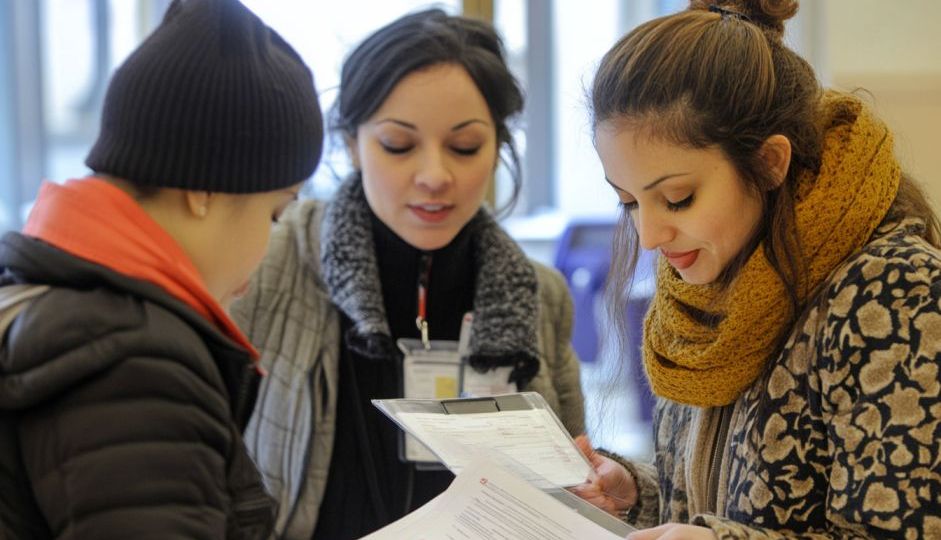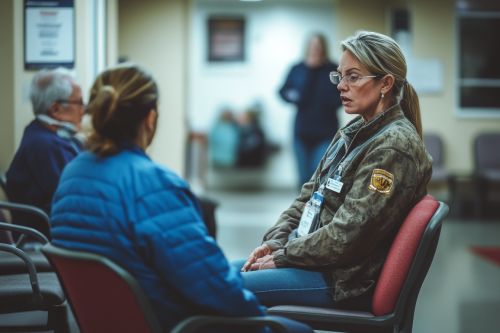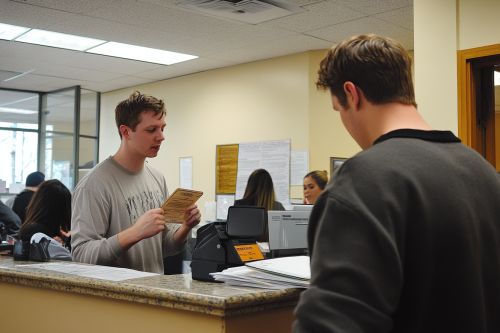

The number of foreigners that need help to understand local procedures and regulations rises with every year. Without translation services, they get restricted access to healthcare, education, and government offices.
The law defines the responsibilities of public institutions in interpreting services. According to Article 21 about freedom of expression and opinion, and access to information of the Charter of Fundamental Rights of the European Union, everyone is entitled to equal treatment and access to public services, regardless of their background. Offices, hospitals, and schools should be prepared to interact with people who do not speak the local language and provide them with the necessary language support.
Contents
Translating health-related information
Translation in medical settings is a matter of life and health. Imagine that you need to explain your symptoms to a doctor, but you do not speak English. How would you understand the diagnosis, recommendations, and treatment plan? Language barriers become a real obstacle in daily life.
Without a translator, patients might unintentionally miss out on information necessary for proper care. They could fail to inform staff about allergies and special needs. To ensure a successful visit, they require help translating medical documents, consent forms, and having a translator present during conversations with health professionals.
Translation in education
Immigrant children who are just learning English struggle to understand their textbooks. Their first classes are extra stressful as they need to focus not only on new material, but also on keeping up with the teacher and classmates.
During meetings with teachers or school counsellors, a translator facilitates communication. This support ensures the child has the right environment for learning and development. Without it, children face a harder start and have fewer chances for educational success.
Translation in court
Certified translation during court proceedings ensure that documents are accurately translated into a language the parties can understand. Without this, foreigners might not grasp the charges they need to defend against or the verdicts that are announced.
During trials, live translation allows for full participation in the process and ensures that individuals who do not speak English can fully exercise their right to defence. This gives them an equal opportunity for a fair trial.
Interpreting and translation services in public administration
Forms and applications at government offices need to be filled out according to specific requirements. Without translation, this can lead to delays or even rejection of applications. People who do not speak the language may also need assistance in filling them out.
Translating a government office’s website makes it easier for foreigners to find the information they require. This promotes inclusion and ensures they are not excluded from public services. It also speeds up the process—an informed visitor knows what documents to bring along.



Translation: Public procurement law
Translation ensures transparency and fairness in tender processes. Tender documents should be accessible to all potential contractors, regardless of their origin. In international tenders, translating the contract conditions and other documents into foreign languages becomes essential.
These translations must be precise. Poorly translated contract terms can lead to disputes between the client and the contractor. They could cause the tender to be invalidated or lead to legal conflicts.
Translation during natural disasters
When a flood, earthquake or other natural disaster occurs, those who do not speak the local language are particularly vulnerable. Translating emergency alerts broadcasted through electronic media, evacuation instructions, and information about available shelters and medical aid is a first step to ensure the safety of everyone affected.
Interpretation services for refugees
Migrants and refugees often have limited access to language education, making it harder for them to learn the local language. Translators need to be ready to work with people who may not understand the basics.
These individuals often require psychological support due to traumatic experiences, as well as social assistance to help them integrate into a new society. Programs run by international organisations, UNHCR, and local NGOs provide translation services during therapy sessions and while offering legal and social advice.
Hiring a sworn translator in public administration: challenges
The shortage of translators is a significant challenge in public services. There is a lack of specialists for rare languages. Imagine a small town needing a translator for Bulgarian or Pashto. Finding someone quickly is nearly impossible, and this impacts access to medical care and legal assistance.
Mistakes in translations can have serious consequences. A misinterpreted diagnosis in a hospital leads to incorrect treatment, and misunderstandings in court results in unfair verdicts. Even a small error can have giant consequences, so translators should always be well-qualified.
The costs associated with translation services pose a challenge for smaller administrative units. Hiring a professional translator full-time is a heavy financial burden for smaller municipalities. An alternative is to rely on volunteers. This option is cheaper. However, it does not always guarantee the quality of service required.



Public Services in foreign languages
Would you like to make public services widely accessible? Our translation agency provides reliable translation for public institutions, hospitals, schools, courts, and government offices. We offer translations in many languages, including rarer ones, to ensure that everyone, regardless of their background, has access to essential services.
Why should you choose our services? We work with experienced translators who fully understand the demands of the public sector. We also provide certified translation necessary for legal processes, as well as interpreting services, perfect for meetings, conferences, and medical interventions.
Contact us if you want to ensure that communication barriers do not stand in the way of accessing public services.















